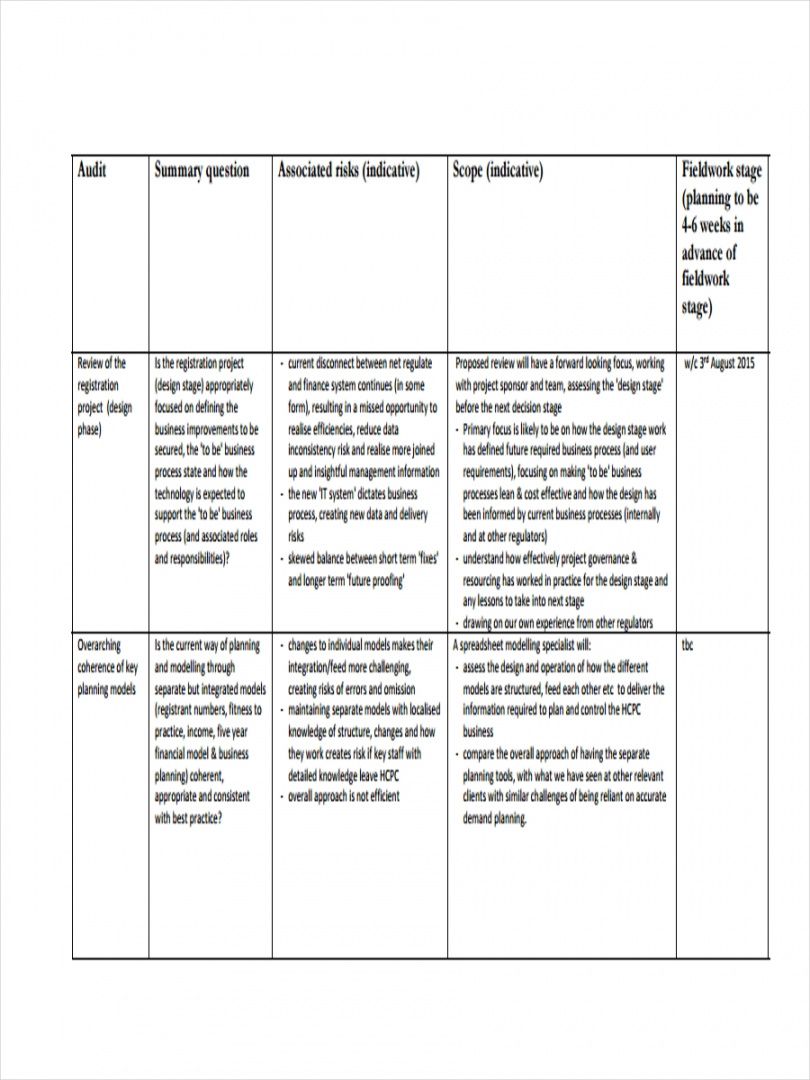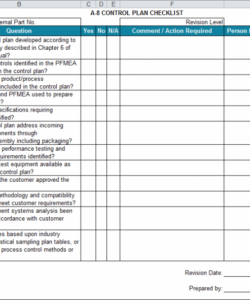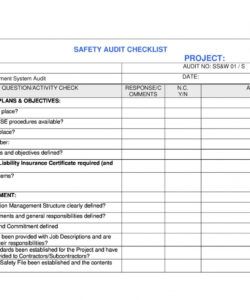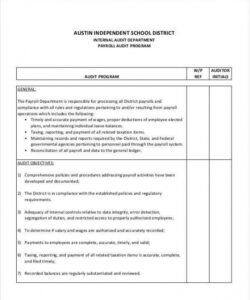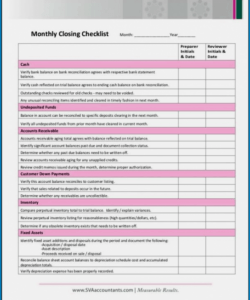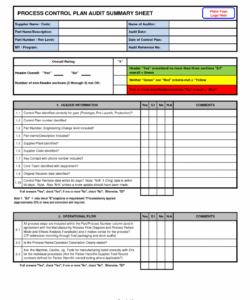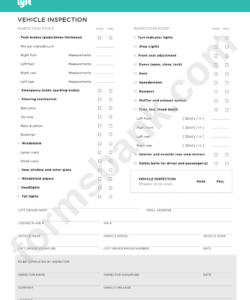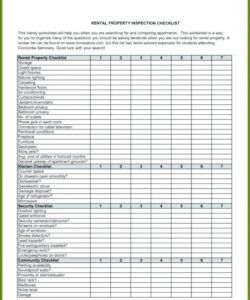Financial audit checklist template, Historically, checklists were simple to-do lists that functioned as reminders; attend the revenue seminar, fax or email the contract to an individual client, or distribute a worker memo. Even today, most dictionaries define a record as a document that acts as a reminder for a collection of jobs to be completed. However, checklists have now evolved to significant business management tools that do far more. Along with record action items, checklists are powerful business processes that empower organizations to raise and progress systematically, and in a planned way. They have become important organizational tools for business ventures.
Business checklists enable you to appraise organizational goals, and prioritize goals so that as you are managing all the high priority activities, the smaller nevertheless necessary tasks will also be integrated and dealt with. They permit you to abide by the planned course of action and recognize deviations prior to any adverse eventualities occur. Moreover, it’s important for any business entity to move quicker than its rivals. By organizing and assigning action items and schedules, checklists allow the company to save time and remain abreast, even beforehand, of its business.
A checklist is a listing of tasks or items that you”check off” because you complete each item/task on the list. Checklists are everywhere and therefore are an essential component of most activities – both personal and business. Within our own daily lives, we make checklists for organizing (“To-Do Lists”), planning (birthday celebration ), prioritizing (bills to pay), shopping (grocery list), etc. Company is no different; checklists are essential to an effective, efficient, and profitable operation.
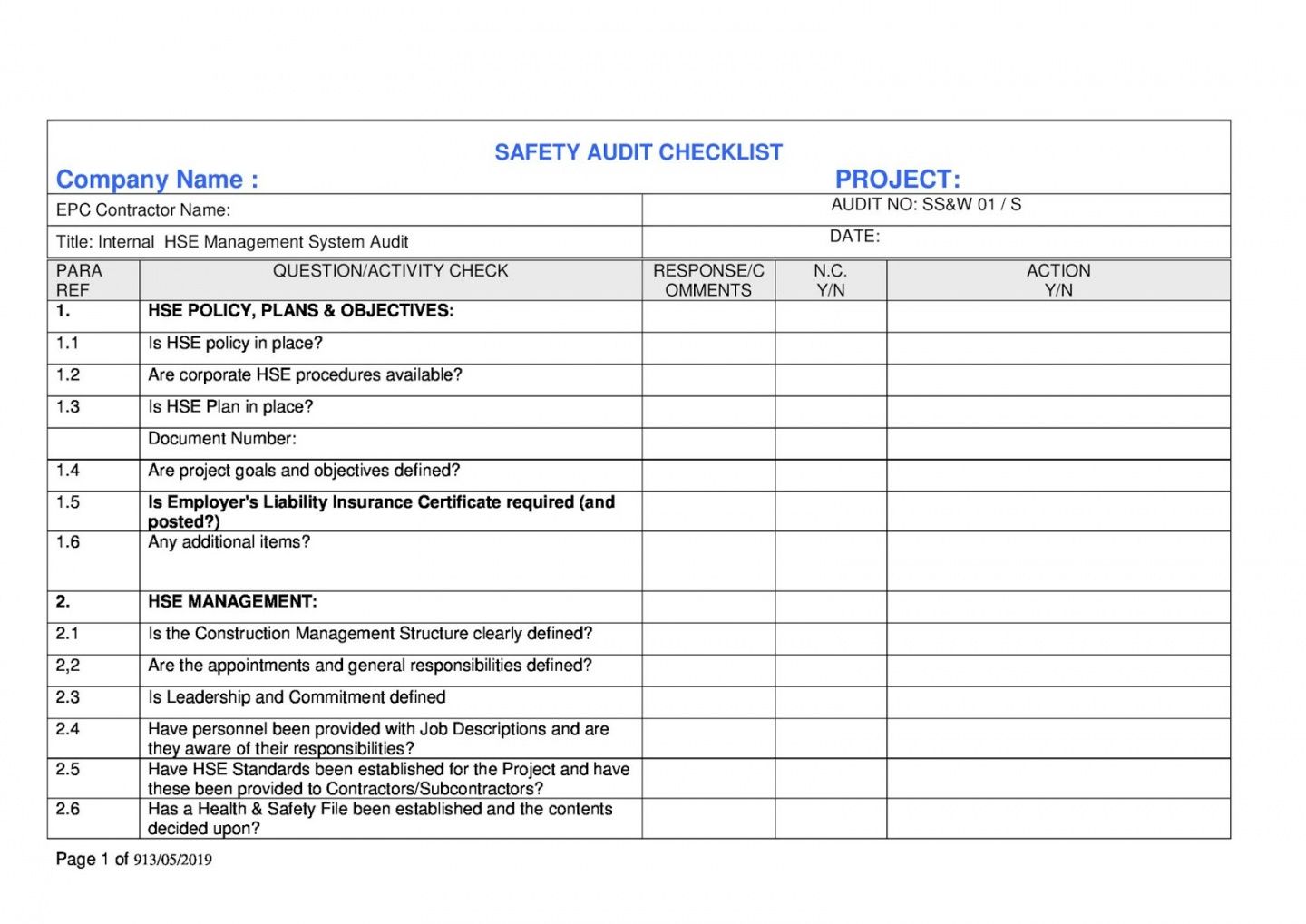
Checklists are valuable tools for long-term in addition to short-term planning. They may be used by any part of a company organization involved in planning for organizational or business growth, production and customer operations, or perhaps human resource administration. Checklists can be developed and used by any type of commercial venture, such as a retail store or restaurant, tech business or manufacturer of consumer durables such as automobiles.
The purpose to using checklists in business is to operate productively and efficiently, keep costs low, and earn a profit. As we’ve discussed above through cases, checklists may be used in all aspects of almost any kind or size operation. Checklists help to arrange tasks, manage time, function more efficiently, avoid excess expenses and inefficient ways, and ensure compliance with policies, laws, and processes. Checklists could be developed internally, can be bought through a commercial source, or purchased and altered to satisfy your particular requirements. Purchasing a commercially available checklist that’s been analyzed by many other business owners can save a lot of time and money. Nevertheless your checklists are created, their use leads to a powerful and profitable organization.
The importance of using a professionally designed management checklist to function as a guide for managing your business operations cannot be overstated. A sound checklist aids management by coordinating important standards, improving objectivity and strengthening reproducibility. A checklist makes planning, tracking and guiding operations, and appraising business aims, a simpler and also a far more efficient procedure. With such a tool, you greatly improve your ability to provide consistent customer service, meet your financial and gain objectives, be concentrated and organized and operate your business better.

